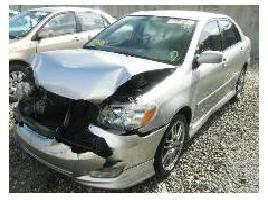Ask an Attorney a Question for FREE!
State Insurance Law
State Regulations to Protect Your Interest
Every State has different State Insurance laws and regulations.

It is always a good idea to review your state regulations before contacting an insurance agent or a claim adjuster. Knowing the insurance law of your state can save you a lot of money and headaches.
Unfortunately many agents lie to you to sell you a more expensive policy. It is important to know what coverages you are required to carry and which ones you are not.
Claim adjusters will tell you that your state law does not require them to give you a rental car. There is no way to double check what they are telling you, unless you figure out your state insurance code.
Also remember that your state insurance regulations will affect the way that your insurance claim is evaluated and if your rates can increase after you file a claim.
One important thing to determine early on is if your jurisdiction allows for advance payment for medical bills.
If it does, you could make the insurance company of the person that hit you to cover all your medical expenses as you incur the expense. Getting them to pay your bill as you “go” will affect the way you would negotiate a claim.
Knowing the local insurance regulation will also help you figure out who is at fault. Remember, state regulation might bar recovery after 50% or 51% negligence. It is very important to know exactly at what point you might lose all rights of recovery.
Just because someone did something wrong, do not assume that they are 100% at fault.
Read all pertinent statutes that apply to the specific situation. Claim adjusters know the state traffic code and they can make a simple statute count against you. But if you read the code and statute, you will know if the statute even applies to you.

Probably the most important piece of information that you must have always on mind is the statute of limitations.
If your state insurance law puts forward a statute of limitation for bodily injury claims, then you must file a formal lawsuit before that date or you lose all your rights.
The statute of limitations in car accidents starts running from the date the accident occurred and it expires when the state insurance law determines. There are different statutes of limitations for both property damage and body injury claims.
The statute of limitations will not stop running because your car is not fixed or because you are undergoing medical treatment.
Most states require the insurance company to disclose or to put you on notice that the statue of limitations will expire and what the consequences will be. However, if you are represented by an attorney, then that requirement is no longer applicable.
Not filing a lawsuit before the statute of limitations expires is the number one cause of legal malpractice lawsuits.
This is why it is critical for you to know what the state insurance law is and statutes say so you do not lose all rights or see yourself in a legal battle against your own attorney.
It is also critical to find what fault jurisdictionally analysis is followed. U.S. States follow three main jurisdictional schemes, contributory negligence, pure comparative negligence, and modified comparative negligence (they will be explained where it is pertinent).

Depending on what state legislation you are dealing with, this analysis can change the way that the claim is evaluated and settled.
It is critical that you understand the difference among each different jurisdiction so you do not agree to something that later can come back and hunt you.
Follow the links below to find more information about each state. You will find insurance State Insurance Regulations and Laws regarding:
Statute of limitations for property damage and bodily injury
Small Claims Court limits
Minimum amount of insurance required
State Insurance Department Websites (where you go to complain)
Which states require Personal Injury Protection?
Is your state a No-fault state?
Is Uninsured motorist coverage required?
Click in your state link below to find the state insurance laws that would apply to you (the state where the accident happened not where you live or where the policy was issued).
|
For a Free Review of Your Case
Please Call (866) 878-2432 |


